ADHAMIYAH, Baghdad (Multi-National Force - Iraq, Sept. 20, 2007) - It was late in the afternoon, and the paratroopers from 2nd Platoon were pulling security at the end of a quiet residential street. Their interpreter was inside one of the houses, helping the platoon leader interview a source.
Before long, a group of women clad in black approached, shouting and causing a scene. Normally, with no interpreter on hand, it would be hard for the paratroopers to figure out why the women were upset. But in this instance, there was an easy solution.
"Sal, go talk to them," suggested squad leader Staff Sgt. Antonio Alvarado to the Soldier next to him.
The soldier called 'Sal' got up off a knee and strolled over to the women. Conversing easily in Arabic, he quickly calmed them down and had them describe the problem. As they spoke, he jotted down the information in a green notepad to give to the platoon leader later.
How is a Soldier in a U.S. platoon able to communicate with Iraqis so well' Simple - he isn't a U.S. Soldier at all. 'Sal' is actually Hanni Sadoon, a sergeant from the Iraqi Army embedded with the U.S. 82nd Airborne Division.
In the northern Adhamiyah area of Baghdad, Sgt. Sadoon and more than 20 other soldiers from the 3rd Battalion, 1st Brigade, 11th Iraqi Army Division are embedding with paratroopers from the 2nd "Black Falcon" Battalion, 319th Airborne Field Artillery Regiment in a new program designed to foster partnership and expose the Iraqis to U.S. military techniques.
Currently each of the Black Falcon platoons has four embedded Iraqi soldiers. The soldiers stay with the platoons for 60 days, and then return to their own units. The first group of embeds is about halfway through the program.
The program has advantages for both sides. The Iraqi soldiers learn new techniques and tactics, while the American platoons get the benefit of the embedded soldiers' cultural knowledge.
"It's a great advantage to me as a squad leader, because it's like having an extra soldier and an extra interpreter at the same time," said Staff Sgt. Alvarado, an Edcouch, Texas-native.
Day in and day out, the Iraqi and U.S. soldiers pull guard duty together, listen to the same briefings, and go out on the same raids and patrols. The paratroopers have given all the Iraqis friendly nicknames, as well as "Double-A" 82nd Airborne patches to sew onto their uniforms. Basically, the embeds are like replacement soldiers who happen to be Iraqis.
"Once we're out on the street, we treat them just like a 'Joe.' They're just another Soldier," said Staff Sgt. Shane Glowcheski, a Rapid City, S.D.-native acting as a platoon leader for B Battery, 2-319th AFAR. Staff Sgt. Glowcheski currently has four Iraqi Soldiers embedded in his platoon.
On a recent patrol, Sgt. Sadoon and Staff Sgt. Alvarado took the point together, leading the patrol down winding streets and talking with local merchants along the way. At one point, Staff Sgt. Alvarado stopped to talk to a man sitting sprawled-out on a curb. After a while, Sgt. Sadoon came over. He listened for a while, then turned to Staff Sgt. Alvarado. "Majnoon," he said, pointing a finger at his head and wiggling it in a circle: "Crazy." The man was apparently deranged.
"Oh, I thought he was trying to tell me something," Staff Sgt. Alvarado said as they continued the patrol.
For the paratroopers, walking several miles a day on patrol is routine. The Black Falcons conduct engagement patrols constantly through the area, building a rapport with the community.
"That's why we're so good in this sector, because we got the trust of the people," said Staff Sgt. Glowcheski.
For the Iraqi Army, gaining that trust has proven more difficult. Because the IA is required to man so many checkpoints, the Soldiers have little time to do the kind of dismounted engagement patrols that have proven successful for the Black Falcons. The embed program gives selected members of the IA that opportunity, said Lt. Col. Al Shoffner, the battalion commander.
For the embeds, it means learning to use a softer touch when dealing with the local people. Staff Sgt. Glowcheski said that under Saddam Hussein the Iraqi Army never did peacekeeping operations, it was strictly a fighting force. Some of that attitude still lingers, he said.
"They're very aggressive. We're trying to tame that down and show them that they only have to be aggressive when they need to be aggressive," Staff Sgt. Glowcheski said.
It's an attitude that the paratroopers believe is crucial to success in a counter-insurgency fight and to the long-term ability of the IA to be successful.
"We're trying to guide them to interact with the people more, so the people will trust them and come to them first, so that when we're out of Iraq they'll be able to depend on the IA forces," said Staff Sgt. Alvarado.
After several weeks of patrolling with the Americans, Iraqi soldiers like Sgt. Sadoon say the message is starting to sink in. The most important thing is to take an active role n the life of the community, he said.
"We keep in touch with the locals and see what their needs are, what they are suffering from, like the power and electricity, and also the security issues," Sgt. Sadoon said.
The next step for the embeds is to return to the Iraqi Army with their new skills and teach them to their fellow soldiers, Staff Sgt. Glowcheski said.
"They need to take all the things we're teaching them, from the battle drills to the counter insurgency stuff, and take it back to their unit," he said. "That's really the point of all this."
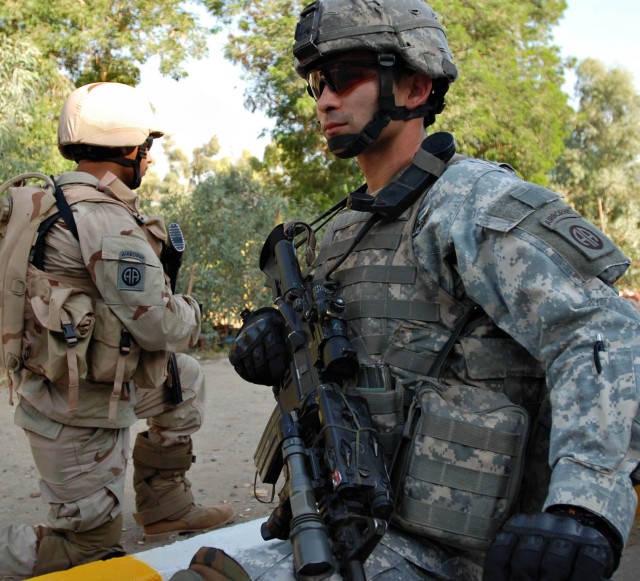
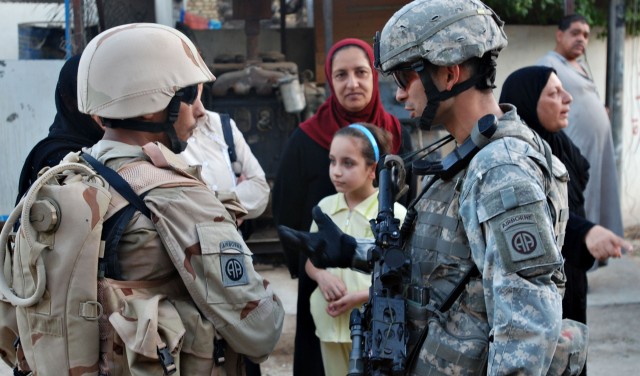
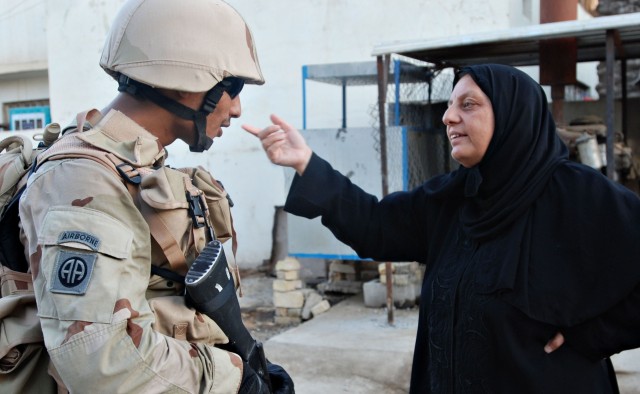
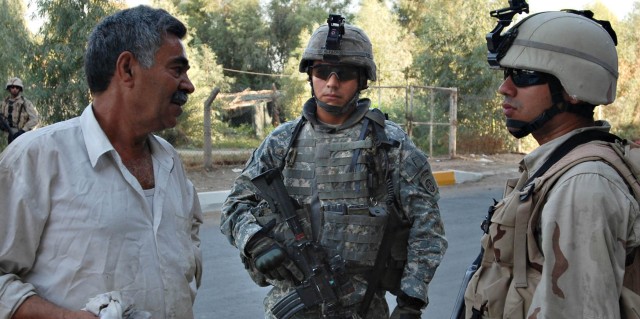
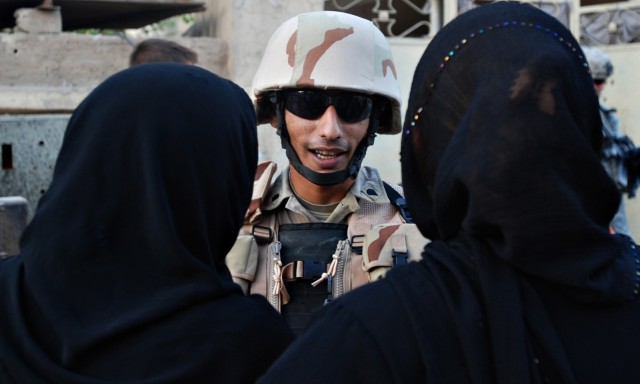
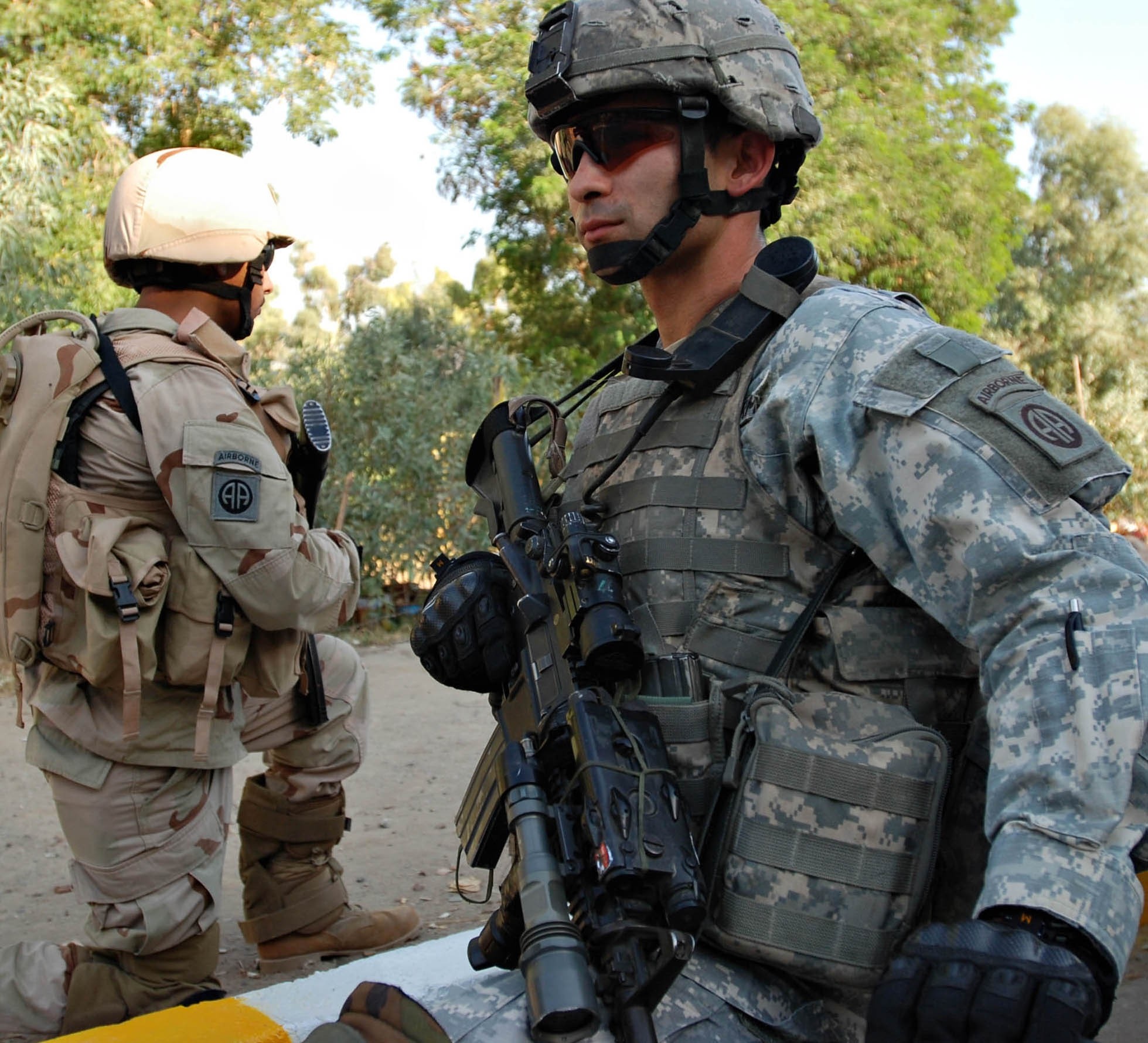


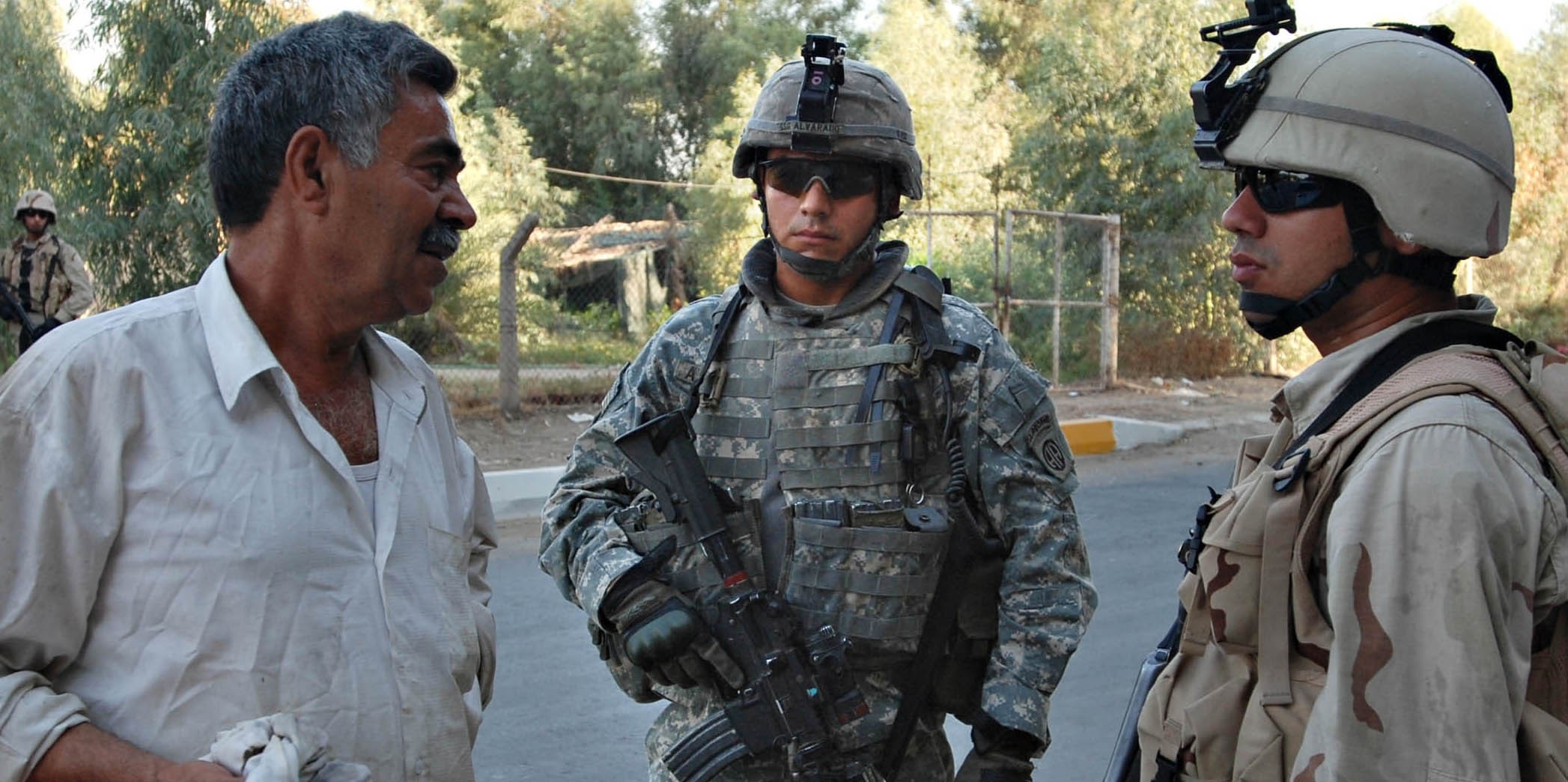
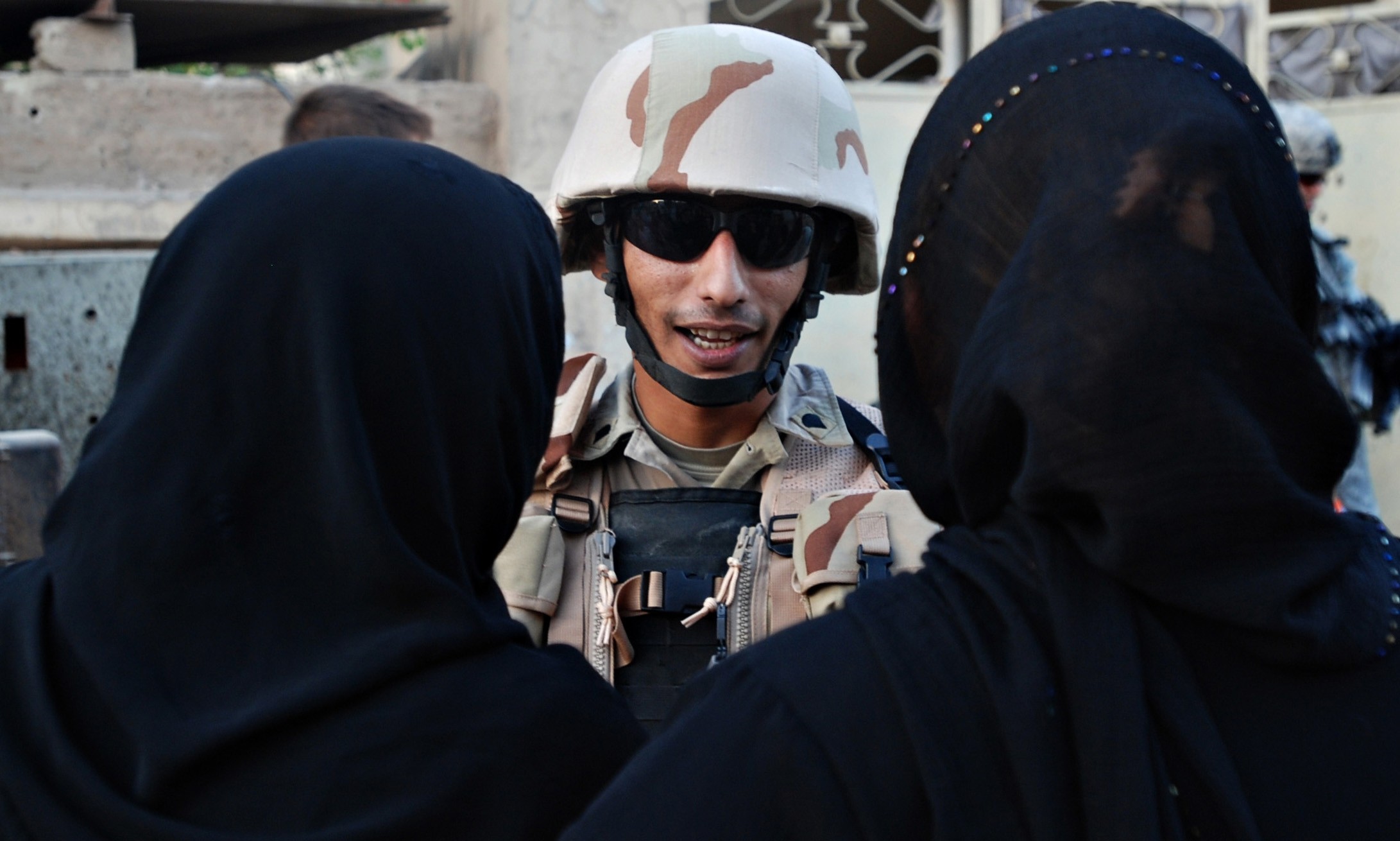
Social Sharing